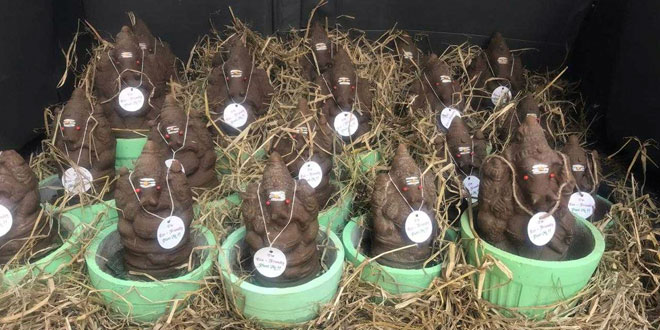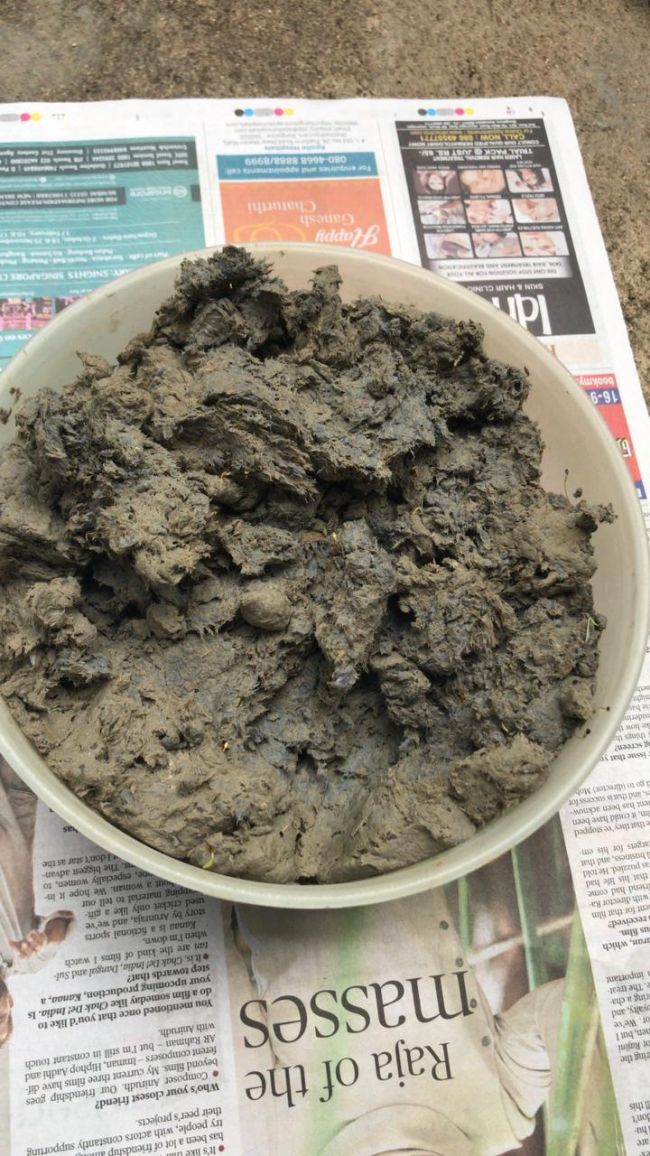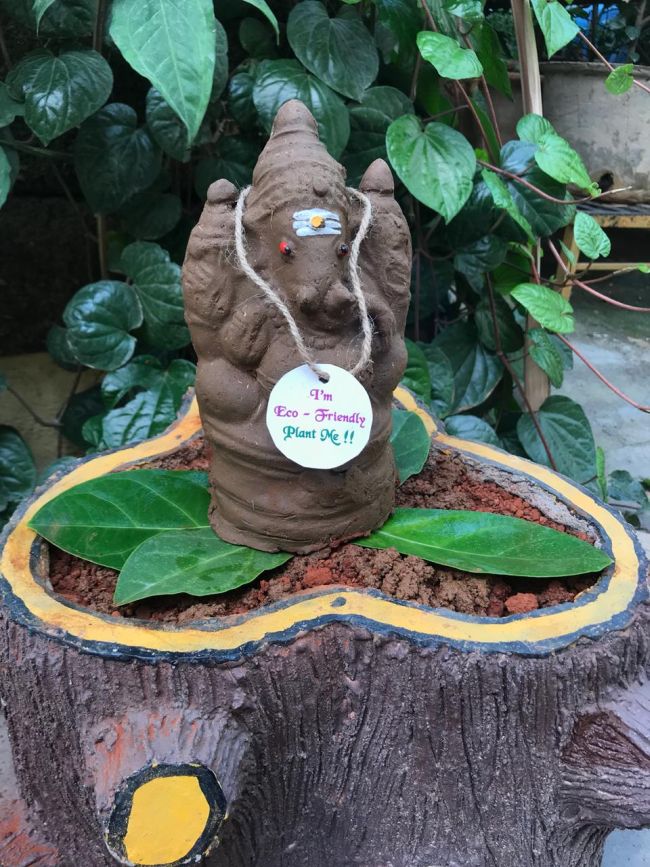New Delhi: Ganesh Chaturthi, a 10 day festival that reveres lord Ganesha, unfortunately contributes to major water and land pollution. The immersion of the idol, which is usually made of POP (Plaster of Paris) and decorated with paints, takes several years to fully dissolve in the water. The revered idol comes along with offerings, fruits, and incense sticks that add up to the water and land pollution. But does this mean we should discontinue the celebrations? 30-year-old Deepa Ramakrishnan from Bengaluru has an eco-friendly solution to this problem, where one can continue partaking in Ganesh Chaturthi celebrations, without adding to water and land pollution. Plantable Ganeshas is the new way to celebrate the much awaited festival!
Also Read: Do It Yourself: How To Make Eco-Friendly Ganesh Idols At Home
This is the first time I have tried making eco-friendly plantable Ganeshas and I am of the opinion that it is one of the most viable alternatives to the regular Ganesha idol made from Plaster of Paris. Once the celebrations are over, instead of immersing the idol in a river or beach, one can simply plant it in a pot and water it. Within seven days, you will have a sapling, ready to turn into a plant”, tells Deepa, founder of MASES (Make Adapt Share Evolve Sustain).
After failing thrice, hits and misses for a month, Deepa came up with a final product recently. The reason it took Deepa so much time is because she wanted to make it completely eco-friendly. Explaining how she did it, Deepa says,
The plantable Ganesha idols I make are based on paper mache technique. Old newspapers are soaked overnight, grinded and strained and then they are combined with clay using arrowroot as a binding agent. While newspapers and clay are used in 80:20 ratio, vegetable seeds are infused in it. Neither do we use any kind of adhesive nor do we bake it. The mixture is simply molded and left for drying.
Also Read: Say No To ‘POP’ Please! Five Eco-Friendly Ganesh Idols To Opt For This Ganesh Chaturthi
Despite being made of 80 per cent paper, plantable Ganesha idols are not fragile and are light weight. Plantable Ganesha idols come in five different variants – spinach, carrot, brinjal, beetroot and raddish. It also comes in different sizes for an individual to choose from, as per his or her needs. The product which can be ordered from the official Facebook page of MASES ranges from Rs. 499 to Rs. 2,000.
Since we are based in Bengaluru, it is easy for us to sell our products in Hyderabad and Chennai. Also, this year I’ll be selling only 100 Ganesha idols, says Deepa.
The eco-friendly plantable Ganesha also comes in an eco-friendly packaging. The Ganesha is wrapped in hay and packed in a cardboard box. Deepa who plans to go 100 per cent eco-friendly with packaging has things planned, which she wishes to disclose only when her online store is launched, which is planned to go live by the end of September.
Not Just Plantable Ganesha, But Stationary Too
MASES which hit the ground running back in February 2018, specialises in plantable paper pencils, greeting cards, wedding cards and others. The other products are sold across India. The price of every product depends on the order quantity and customisation, if any.
Talking about the idea behind initiating MASES, Deepa says,
I have always been interested in crafts and paper mache is one thing that attracts me a lot. While so many people do paper mache, the problem is, they use chemicals in some or the other form. To say, adhesive to join the product or toxic paints. I wanted to make organic products and for the same I did my research. I met numerous people, spoke to them, and understood the concept.
After plantable Ganesha idosl, Deepa plans to try her hands to other products and introduce more eco-friendly products. Currently, Deepa is eying on making Diwali a green celebration.
NDTV – Dettol Banega Swachh India campaign lends support to the Government of India’s Swachh Bharat Mission (SBM). Helmed by Campaign Ambassador Amitabh Bachchan, the campaign aims to spread awareness about hygiene and sanitation, the importance of building toilets and making India open defecation free (ODF) by October 2019, a target set by Prime Minister Narendra Modi, when he launched Swachh Bharat Abhiyan in 2014. Over the years, the campaign has widened its scope to cover issues like air pollution, waste management, plastic ban, manual scavenging and menstrual hygiene. The campaign has also focused extensively on marine pollution, clean Ganga Project and rejuvenation of Yamuna, two of India’s major river bodies.


































